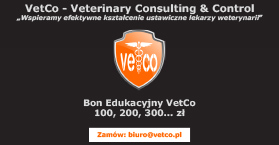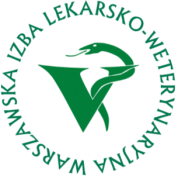|
|
Dr Mark E. Peterson uzyskał tytuł lekarza weterynarii z wyróżnieniem na University of Minnesota w 1976 roku. Po przeprowadzce do Nowego Jorku odbył staż w The Animal Medical Center, jednym z najstarszych i największych szpitali weterynaryjnych na świecie. Następnie ukończył studia podyplomowe w dziedzinie endokrynologii i medycyny nuklearnej w New York Hospital - Cornell Medical Center. Uzyskał także certyfikat American College of Veterinary Internal Medicin.
Dr Peterson kieruje oddziałem Endokrynologii na Wydziale Lekarskim w AMC od ponad 30 lat. W międzyczasie prowadził pracę wykładowczą na University of Pennsylvania (1996-2000), jako profesor radiologii w Weill Medical College of Cornell University (1983-2005) oraz adiunkt w New York State College of Veterinary Medicine, Cornell University (1982-1988). W 2005 r. dr Peterson stworzył Animal Endocrine Clinic - specjalistyczny szpital dedykowany diagnozowaniu i leczeniu psów i kotów z zaburzeniami endokrynologicznymi, w którym osobiście prowadzi większość pacjentów.
Przez ostatnie 34 lata większość klinicznych i naukowych dokonań dr Petersona skierowana była na temat zaburzeń endokrynologicznych pochodzenia naturalnego u psów i kotów, zwłaszcza cukrzycy, chorób tarczycy i nadnerczy. Dr Peterson opublikował ponad 450 artykułów naukowych w prasie branżowej, rozdziałów książek, i streszczeń naukowych. Z ponad 250 wykładami na swoim koncie, dr Peterson jest częstym prelegentem na seminariach i kongresach naukowych, zarówno w Stanach Zjednoczonych jak i za granicą.
Dr. Mark E. Peterson is a world-renowned specialist in endocrinology (hormonal disorders) of the dog and cat. He specializes in endocrine problems such as diabetes, hyperthyroidism, hypothyroidism, Cushing's and Addison's disease.
Dr. Peterson served as head of endocrinology and nuclear medicine at The Animal Medical Center in New York for over 30 years. He now sees patients at his own private practice, the Animal Endocrine Clinic, with two locations in New York City and Westchester County. The AEC is the world's foremost animal clinic for feline and canine endocrinology and is the only veterinary hospital devoted entirely to animals with endocrine problems. Each location has a Hypurrcat facility dedicated solely to treating hyperthyroid cats with radioiodine. Dr. Peterson created his clinics in an environment that combines scientific knowledge with his compassionate care to effect a cure.
Dr. Mark Peterson is also very active in writing and teaching other veterinarians. He has published hundreds of journal articles, book chapters, and research abstracts and is the editor of a leading textbook on veterinary endocrinology. With more than 250 teaching presentations to his credit, Dr. Peterson is a frequent speaker at veterinary and medical seminars both in the United States and around the world.
Źródło: www.drmarkepeterson.com
Hypurrcat is a treatment center built exclusively for radioiodine treatment of cats with hyperthyroidism.
Feline hyperthyroidism was first documented 31 years ago by Dr. Mark E. Peterson and coworkers. Since then, hyperactive thyroid disease has become the most common hormonal disorder of domestic cats. Due to continued research, hyperthyroid cats now have the same therapeutic choices as human patients including medication to suppress the thyroid hormone production, surgical removal of the thyroid tumor, or radioactive iodine (radioiodine I-131) therapy to destroy the thyroid tumor responsible for the condition.
Of these treatment options, radioiodine therapy is considered by authorities to be the treatment of choice for this condition in cats. Overall, radioiodine provides a simple, effective, and safe cure, regardless of the cat?s age. If left untreated, however, hyperthyroidism can be fatal.
At Hypurrcat we can now easily and completely cure this disease with our radioiodine procedure, destroy your cat's thyroid tumor, and return your cat to a normal thyroid state.
Źródło: www.hypurrcat.com












